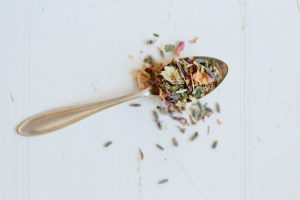The Naturopathic Co.

You're using an outdated browser. Please upgrade your browser to improve your experience.
Anxiety is recognised as a contributor to the pathogenesis of a range of diseases. It is estimated that approximately 75% of GP visits are related to stress, whether acute or chronic, causing significant decrease in quality of life.
Stress suppresses immune function, which leads to increased illness, such as autoimmune flares, digestive issues, asthma, skin conditions, and exacerbation of allergies.
Rates of anxiety and depression continue to rise in Australia, The National Survey of Mental Health and Wellbeing found almost half of Australian adults met the criteria for the diagnosis of a mental health disorder at some stage of their lives, with anxiety disorders being the most common mental health disorder, affecting more women than men.
Anxiety and depression disorders are complex clinical conditions, involving an interplay between biological factors, environmental influences and psychological mechanisms.
There are certain factors that influence the risk of developing anxiety and depression, including stress, genetic factors, childhood trauma, and the microbiota (the bacteria living in our gut).
The stress response begins in the brain, with the hypothalamus activating the sympathetic nervous system and the adrenal glands releasing adrenaline into the bloodstream.
The fight or flight response is activated. A feedback mechanism signals the hypothalamus to stop the process once the stressful situation has passed, however chronic stress dysregulates the HPA axis (hypothalamic pituitary adrenal axis) which contributes to many disease states.
Current research suggests that chronic anxiety leads to elevated cortisol levels, but also results in abnormalities of serotonergic, noradrenergic, glutamatergic and gamma-aminobutylic acid (GABA).
Naturopathic treatment of anxiety can involve a variety of herbs and supplements, depending on the individual’s requirements and level of anxiety.
B vitamins are integral to the health and functioning of the nervous system. They are important cofactors in the biosynthesis of neurotransmitters including GABA, dopamine and serotonin.
Disorders of mental health such as depression and other mood disorders have been associated with low intake of omega-3 fatty acids, in particular docohexanoic acid (DHA) and eicosapentaenoic acid (EPA) which are found in high amounts in fish oil.
Holy basil (Ocimum tenuilorum) has been shown to significantly decrease stress related symptoms including sleep problems, forgetfulness, and significantly improve the symptoms of generalised anxiety disorder.
Kava (Piper methysticum) has been traditionally used to quickly and effectively reduce symptoms of anxiety and restlessness. The active constituents of kava interact with dopaminergic, serotonergic, and GABA-ergic.
Passionflower (Passiflora incarnata) and skullcap (Scutellaria lateriflora) interact with GABA receptors to induce an anxiolytic and sedating effect.
Probiotics can positively impact the gut flora and help to treat anxiety disorders. Lactobacillus helveticus, Biidobacterium longum, L. acidophilus, L. casei and B. biidum have all been shown to improve low mood.
Sour cherry (Prunus cerasus) are rich in phytochemicals including melatonin, a hormone involved in the regulation of the sleep-wake cycle and are rich in anti-inflammatory compounds.
Clinical trials show St John’s wort (Hypericum perforatum) to be beneficial in the treatment of mild, moderate and severe depression. St John’s wort has anxiolytic and antidepressant effects via a range of mechanisms including inhibiting the reuptake of neurotransmitters such as serotonin, dopamine, adrenaline, L-glutamate and GABA.
Lemon balm (Melissa officinalis) has been shown to be effective for treating anxiety, improving sleep, increasing calmness and improving cognitive performance.
Stress and anxiety may lead to magnesium depletion and magnesium may play a role in HPA axis modulation, with magnesium deficiency associated with increased anxiety.
The combination of magnolia (Magnolia officinalis) and phellodendron (Phellodendron amurense) has been clinically shown to reduce anxiety, perceived stress and overeating associated with stress.
If you suffer from symptoms of anxiety, don’t wait any longer. Make an appointment to discuss your anxiety with your health practitioner who will devise a personalised treatment plan based on the symptoms you experience.
Yvette is a qualified Melbourne-based Naturopath and Nutritionist, MINDD Practitioner, member of the Naturopaths and Herbalists Association of Australia, and Complementary Medicine Association. Yvette specialises in the treatment of conditions commonly affecting women and children, with a key interest in children’s digestive and neurological conditions, as well as women’s hormonal concerns, digestive issues, fatigue, anxiety, and skin concerns. Yvette consults in South Yarra, Melbourne, as well as Australia-wide via skype/zoom/phone.
The Naturopathic Co. Melbourne Naturopath 2020
Comments are closed.